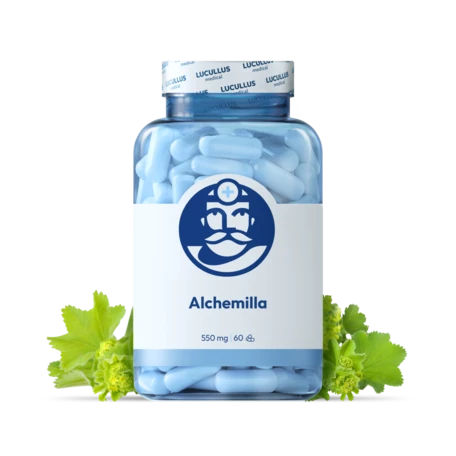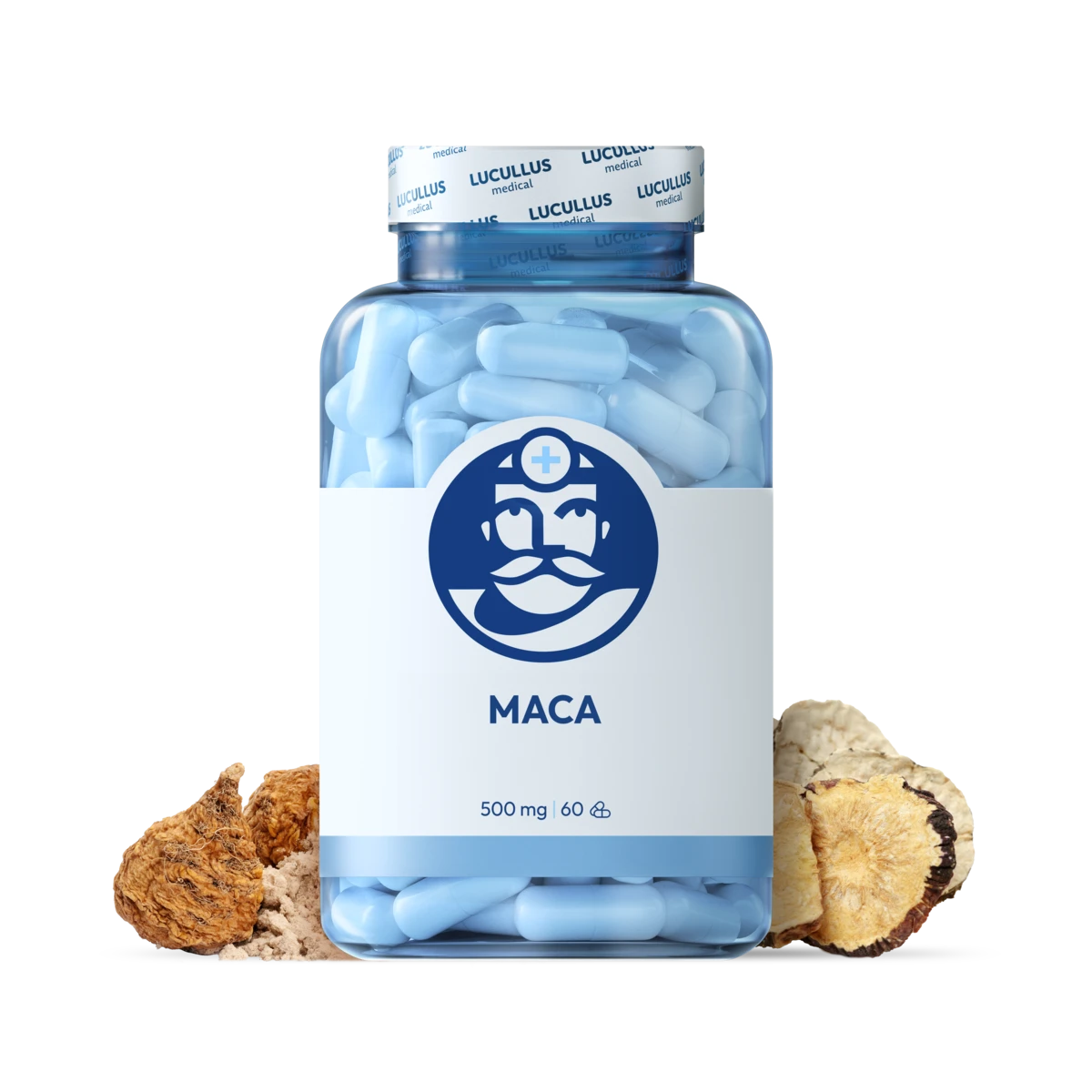
Surprisingly Resilient Maca - Peruvian Cress
This remarkable plant (Lepidium mayenii) from the Peruvian Andes, where it is grown at extreme altitudes (4000 m a.s.l.). It is incredibly resilient and can survive and grow in conditions where most other plant species would not survive, such as low temperatures, strong winds, and intense UV radiation. Its ability to adapt to harsh environments enriches it with nutrients and substances that positively impact the human body, enhancing resistance to both physical and mental stress.

Vitamín B3 Niacínamid
Vitamín B3 - niacín, možno aj starší poznajú aj pod názvom P. Patrí do skupiny vitamínov B, ktoré nájdeme v multiformnom B-komplexe. Je to veľmi dôležitá skupina, ktorú potrebujete pre správnu funkciu zraku, slizníc, kože, srdca... V prípade potreby potrebujete pre správne fungovanie srdcovej, svalovej a nervovej činnosti.

MSM (Organosulfur) .... multifunkčný doplnok
Vedeli ste, že síra je pre naše telo rovnako nevyhnutná, ako vitamíny či minerály? Jedným z jej najvýznamnejších zdrojov je látka nazývaná metylsulfonylmetán, skrátene MSM. Napriek tomu, že názov znie, ako z učebnice chémie, ide o prirodzenú látku tak zásadným významom pre správne fungovanie organizmu. MSM sa prirodzene vyskytuje v krvi, tkanivách a orgánoch, kde podporuje látky, ako sú aminokyseliny - glutatión, cysteín a metionín. Táto organická zlúčenina síry, známa aj ako organosulfur je mimoriadne účinná v boji proti oxidačnému stresu, zápalom a pri regenerácii tela. Jej zdrojom môžu byť prírodné potraviny. Organosírne zlúčeniny, ako napríklad aličín v cesnaku, majú široké zdravotné využitie, a MSM je jedinečný v tom, že ponúka komplexnú podporu od zdravia kĺbov až po posilnenie imunity .

Kolagén+C+kyselina hyalurónová - recept na krásu a mladosť
Každý chce pre svoje zdravie urobiť maximum a keď sa zahĺbi do štúdia výživových doplnkov, tak čoskoro zistím, že aby splnil denný príjem všetkých potrebných látok, tak by musel denne konzumovať poriadnu dávku kapsúl. Samozrejme, ako pri všetkom, aj tu musíme použiť zdravý, sedliacky rozum.

The First of Vitamins - B1
Maybe it's burnout ... that's the current description of the state when we feel different. When the coffee we loved no longer works and in the afternoon we are overwhelmed by unbearable fatigue, when in the evening we have no strength for anything, neither for sports nor for friends. And certainly not for another day at work. A nutritionist would describe this state with further findings of our diet with the words - „ You have a lack of thiamine (B1), which is essential for the proper functioning of the nervous system and the conversion of food into energy. Your diet is full of processed carbohydrates, but almost without B1. And when the body doesn't have enough thiamine, you can feel fatigue, forgetfulness, irritability, and even anxiety. And caffeine? It depletes thiamine in the body even more!“ We certainly wouldn't think that this state could be caused by a “triviality”. After all, many of us don't register thiamine, I admit it was also my case. This first of the discovered vitamins in 1912 was named by the Polish biochemist Funk with the term vita (necessary for life), amine (substances that contain nitrogen). Since then, it has gained more names, like aneurin, and for 25 years we have called it thiamine. It is essential, meaning it cannot be synthesized and must come from the diet. It sounds almost frightening that without it we wouldn't survive longer than a few days, at most weeks. This is because the body cannot store it for long and it is necessary to ensure its intake regularly, as it is irreplaceable for the proper functioning of the organism. On the contrary, its abundance helps improve concentration and memory.

Definujeme fakt: kĺbová výživa nielen pre tých, ktorých trápia kĺby
Preskúmajte spolu obsah tejto zdraviu prospešnej zmesi a akým spôsobom funguje. Zabezpečí lepšiu pohyblivosť, čo (zďaleka) nie je všetko. Joint Pro zlepšuje celý rad zdravotných špecifikácií vrátane zápalu, bolesti, odolnosti voči stresu a antioxidačnú kapacitu. Kĺbová výživa Dr. Lucullus je vytvorená pre prevenciu a najmä pre športovcov (znižuje oslabenie, zaťaženie), seniorov (rieši obmedzenú pohyblivosť- artritídu a artrózu), osoby po úrazoch (rýchla regenerácia), ľudí s nadváhou (posilnenie odolnosti kĺbov), mladistvých (úľava od stuhnutosti, podpora vývoja).































